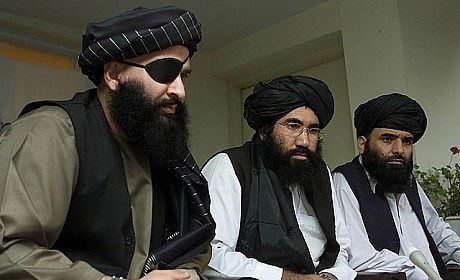The Taliban’s Carrot and Stick Policy

Iranian Diplomacy: This year too, Mullah Omar issued a statement on the occasion of Eid-ul-Fitr. What is his objective for issuing such statements? Can one call the issue an attempt to imply a presence of religious leadership in Afghanistan?
Mohsen Pakaeen: Usually every year, the leader of the Taliban announces his positions through a message on the occasion of Eid-ul-Fitr. But, this year's message contains three points. The first is that Mullah Omar has talked about victory over foreign forces and progress made by his forces during the summer and declared that these attacks have caused the forces of the government of Afghanistan and NATO allies to take a defensive position. The second point which should be taken into consideration in this message is that he has stated that the goal behind these attacks against foreign forces is to open the path towards negotiations with the US, but it does not mean surrendering and giving up the Taliban's goals. These points show that the Taliban follows a carrot and stick approach with the US and by continuing its attacks seeks dialogue with the US and exchange of its prisoners. The US is so angered by Mullah Omar's message that NATO commander John Allen has called him a deranged man similar to insane people.
ID: In this message, the Taliban has said that it is ready to negotiate with Afghan parties to create an “all Afghan inclusive Islamic regime" after the withdrawal of foreign forces from Afghanistan. How logical and probable is this statement? Is the government of Afghanistan ready to divide its power with the Taliban?
MP: In fact, the Taliban has strongly repeated its previous pre-condition based on the necessity of withdrawal of NATO forces to open dialogue with the government of Afghanistan. The government of Afghanistan is willing to talk with the Taliban and share power with this group; but this willingness is one-sided and the Taliban has not shown any interest in talking with the government of Afghanistan and has declared that it considers the US as the root of problems in Afghanistan; hence, it will negotiate with Washington if its pre-conditions are met. In my opinion, in Mullah Omar’s message, there is no sign of the willingness of this group to negotiate with the government of Afghanistan, and in fact, the Taliban's pre-conditions have rendered negotiations with the government almost impossible.
ID: Considering regional rivalries, do you think neighboring countries and regional powers will agree with the Taliban's entrance into power in Afghanistan?
MP: Afghanistan’s security problem has no military solution, and the only way to solve this problem is through peace negotiations between Afghan groups including the Taliban; in this path, if foreign forces withdraw from Afghanistan, the path to negotiations will be smooth and the neighboring and regional countries will welcome it and help in the establishment of security and stability in this country. In conclusion, if the Taliban joins the peace trend by accepting the Afghan Constitution, the path to national reconciliation will be paved.
ID: During recent days, the Daily Telegraph and the Wall Street Journal have reported that Iran has given permission to the Taliban to open an office in this country. The Wall Street Journal, in this regard and while quoting Afghan officials and western sources, has reported that “a member of the Taliban leadership, Quetta Council, has opened an office in Zahedan in late May". Officials of the Foreign Ministry have denied this matter. But the question of what Iran's approach towards the Taliban is remains. Is it possible that Iran will one day take such an action?
MP: The news about the establishment of the Taliban office in Zahedan is not correct and was denied. Iran recognizes the legal government of Afghanistan. This government has its embassy in Tehran and its consulates in Mashhad and Zahedan. There is no plan for the opening of a Taliban office in Iran
ID: The general head of national security of Afghanistan announced, through a statement last Friday, that those who committed group suicide attacks in the Nimrooz province three days ago had come from Iran. Why was such an issue raised? Don't these sorts of issues affect Iran-Afghanistan relations?
MP: Iran has friendly and stable relations with Afghanistan and not only does not interfere in its internal affairs but is also against instability in that country. Therefore, the charge regarding Iran's involvement in creating insecurity in Afghanistan is baseless and has always been denied. However, bearing in mind the long borders between the two countries, it is possible that the citizens of Iran and Afghanistan may illegally cross the border. In order to control our borders, we have had good cooperation with Afghan security officials. With regard to this recent event, if it is true, we are prepared, in cooperation with the Afghan government, to determine the identity of those arrested in order to clarify their objectives.

